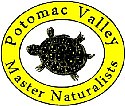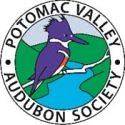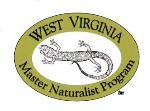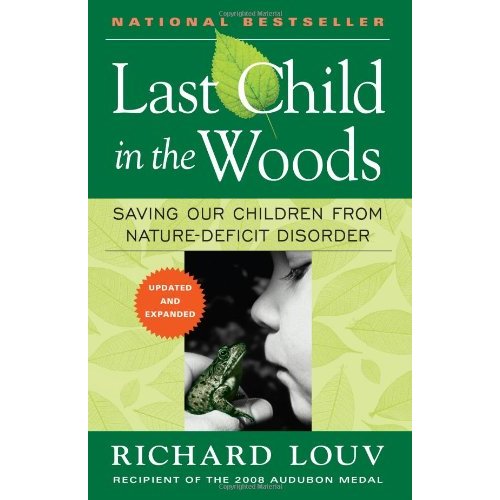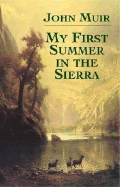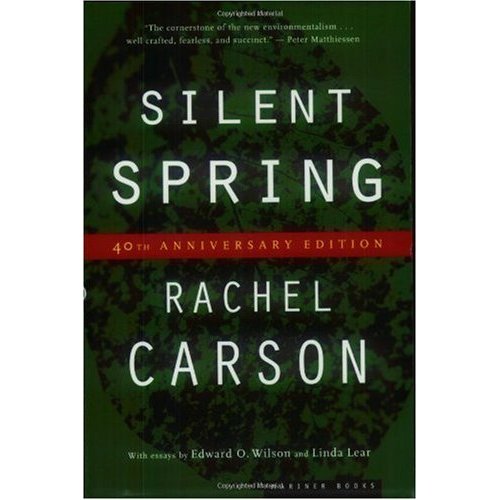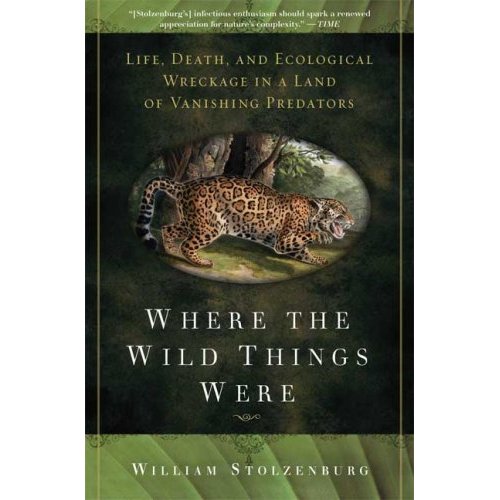Take Part in the Rusty Blackbird Blitz
Volunteers needed to map this rapidly declining species
January 29 thru February 13th, 2011
Where are the Rusty Blackbirds? The North American population of this species has plunged an estimated 85 to 99 percent over the past 40 years. To help pinpoint where the remaining birds can be found, volunteers are needed for the third annual Rusty Blackbird Blitz taking place January 29 through February 13. This is when Rusty Blackbirds become easier to find and the population is relatively sedentary. Volunteers can report the presence or absence of Rusty Blackbirds at http://www.ebird.org/. Data gathered during the blitz will be used to create a map of wintering Rusty Blackbird "hot spots" and will help focus research, monitoring, and conservation efforts.
The eBird program is led by the Cornell Lab of Ornithology and the National Audubon Society. The blitz is coordinated by the International Rusty Blackbird Technical Working Group at the Smithsonian Migratory Bird Center along with the Cornell Lab and Audubon.
"Blackbirds have been in the news a lot lately due to the mysterious death of roughly 5,000 birds in Arkansas," said eBird leader Brian Sullivan. "Although Rusty Blackbirds were not directly involved in that incident, they face even greater challenges including loss of vital bottomland forest wintering habitat across the Southeast that has led to a severe decline in the species’ numbers. The 'Blitz' will help scientists learn more about the habitat requirements and basic biology of this enigmatic species."
"Blitzers" will report the number of birds present at each location they visit, along with very basic habitat information. One hallmark of the Rusty Blackbird is its pale "staring" eyes. In late January and early February, males will appear mostly black and females will have rusty edges on their wings and body. The Rusty Blackbird spends its winters in bottomland wooded-wetlands, primarily in American midwestern and southeastern states.
For more information on identifying Rusty Blackbirds and where they might be found, visit the eBird website and the International Rusty Blackbird Technical Working Group site.
Rusty Blackbird Blitz Volunteer Opportunity
Thursday, January 27, 2011
- By Stephanie
Labels:
Volunteer Opportunities
Jefferson Co. Schools Volunteer Opportunity
- By Stephanie
Labels:
Volunteer Opportunities
If you are looking for a way to combine hiking with VH (as Clark Dixon does), you might want to think about helping with one of the class hikes at Harpers Ferry Middle School. This is part of their school day--great way to get outside, get exercise, and be a Master Naturalist!
_____________________________________________________
Good Afternoon Hike Leaders!
Attached you will find the hike schedule as of right now for the Spring. We are looking for volunteers like you to share your passion for the outdoors with the middle school students of Jefferson County. Please take a look at the schedule and let me know what day you would like to lead a hike and the topic and place if one has not already been requested by the school.
If you have any questions please feel free to contact me.
See you out on the trails!
Amber Kraft
Education Specialist
Harpers Ferry National Historical Park
Amber_Kraft@nps.gov
A schedule of the hike dates was emailed to you. Please contact Amber if you did not receive it and are interested in volunteering.
_____________________________________________________
Good Afternoon Hike Leaders!
Attached you will find the hike schedule as of right now for the Spring. We are looking for volunteers like you to share your passion for the outdoors with the middle school students of Jefferson County. Please take a look at the schedule and let me know what day you would like to lead a hike and the topic and place if one has not already been requested by the school.
If you have any questions please feel free to contact me.
See you out on the trails!
Amber Kraft
Education Specialist
Harpers Ferry National Historical Park
Amber_Kraft@nps.gov
A schedule of the hike dates was emailed to you. Please contact Amber if you did not receive it and are interested in volunteering.
2011 Class dates
Monday, January 24, 2011
- By Stephanie
Labels:
2011 Schedule
,
Cacapon
,
Cool Spring Farm
,
Core Classes
,
Electives
,
NCTC
,
Yankauer Preserve
For those continuing with the Master Naturalist classes this year, the TENTATIVE list of dates for 2011 is as follows. You can use this to determine when the classes you need to complete the course will be offered.
Core classes are required for you to graduate. Elective hours can be substituted hour for hour with any approved elective, but it is easier for you to plan on the ones offered.
March 19-20 Cacapon Orientation, General Ecology, Names/Classification/Identification and Soils (elective), Nature Interpretation/Teaching and Geology (elective)
April 30 Shepherd University Birds and Wildflowers/Weeds
May 21 NCTC Terrestrial Habitats and Recording/Sharing and Preserving What You Know
June 11 Cool Spring Farm Reptiles/Amphibians, Beavers (elective), Mammals
July 16 Cacapon Aquatic Habitats
August 6 NCTC Slime Molds (elective), Insects/Spiders & Such
Sept 10 Cool Spring Farm Wetland Habitats and Habitat Improvement
Oct 1 Yankauer Trees/Shrubs/Woody Wines, Service Project and Elective (elective)
Nov 5 Cacapon Service Project, Auction, and Casual Picnic
Nov 19 NCTC Annual Meeting and Presentation of Certification
Core classes are required for you to graduate. Elective hours can be substituted hour for hour with any approved elective, but it is easier for you to plan on the ones offered.
Core classes are required for you to graduate. Elective hours can be substituted hour for hour with any approved elective, but it is easier for you to plan on the ones offered.
March 19-20 Cacapon Orientation, General Ecology, Names/Classification/Identification and Soils (elective), Nature Interpretation/Teaching and Geology (elective)
April 30 Shepherd University Birds and Wildflowers/Weeds
May 21 NCTC Terrestrial Habitats and Recording/Sharing and Preserving What You Know
June 11 Cool Spring Farm Reptiles/Amphibians, Beavers (elective), Mammals
July 16 Cacapon Aquatic Habitats
August 6 NCTC Slime Molds (elective), Insects/Spiders & Such
Sept 10 Cool Spring Farm Wetland Habitats and Habitat Improvement
Oct 1 Yankauer Trees/Shrubs/Woody Wines, Service Project and Elective (elective)
Nov 5 Cacapon Service Project, Auction, and Casual Picnic
Nov 19 NCTC Annual Meeting and Presentation of Certification
Core classes are required for you to graduate. Elective hours can be substituted hour for hour with any approved elective, but it is easier for you to plan on the ones offered.
MN Recertification
Monday, January 17, 2011
- By Stephanie
Labels:
2011 Schedule
Hi All-
Now that it is after January 1, we wanted to touch base with you all and make sure you knew how MN recertification works. Since you graduated in 2010, you begin recertification in 2011. Each calendar year, you need a minimum of 8 hours of class time (in 2 different natural history topics) and 16 hours of volunteer time to remain an active Master Naturalist. Everything is based on a calendar year of January 1-December 31, so you have the full year to complete stuff. A copy of the recertification form has been emailed to you, it is to be submitted at the end of each year. Contact us if you did not receive the recertification form.
PVMN offers workshops that can be used for recertification—you should have received an email about that, but it is also available at www.potomacaudubon.org. Most of those classes are 2-3 hours each. You can also take classes at places like the Smithsonian Naturalist Center in Leesburg (or in DC) or NCTC. If you are taking a natural history class at Shepherd or another school, you can claim the class credit hours (a 3-hour class=3 hours of MN time regardless of how much time you spend in class over the semester.) PVAS monthly meetings at NCTC will also qualify. Everything is on an hour by hour basis so if you come to a PVAS monthly meeting, you’d probably be getting 45-60 minutes. Friends of the NCTC programs are usually longer. If you take Birding 101, all of the class hours count.
Volunteer projects are often arranged by the PVMN committee, but you can do things like volunteer a day or week at camp, assist with watershed field trips or other programs, work on the committee (like the Member Services subcommittee!!), volunteer at the Cacapon State Park Nature Center (Kelly will love you!), or any of the other stuff you did to initially certify.
If you have any questions, don’t hesitate to ask us!
Ellen and Wanda, your friendly MN Member Services folks
Now that it is after January 1, we wanted to touch base with you all and make sure you knew how MN recertification works. Since you graduated in 2010, you begin recertification in 2011. Each calendar year, you need a minimum of 8 hours of class time (in 2 different natural history topics) and 16 hours of volunteer time to remain an active Master Naturalist. Everything is based on a calendar year of January 1-December 31, so you have the full year to complete stuff. A copy of the recertification form has been emailed to you, it is to be submitted at the end of each year. Contact us if you did not receive the recertification form.
PVMN offers workshops that can be used for recertification—you should have received an email about that, but it is also available at www.potomacaudubon.org. Most of those classes are 2-3 hours each. You can also take classes at places like the Smithsonian Naturalist Center in Leesburg (or in DC) or NCTC. If you are taking a natural history class at Shepherd or another school, you can claim the class credit hours (a 3-hour class=3 hours of MN time regardless of how much time you spend in class over the semester.) PVAS monthly meetings at NCTC will also qualify. Everything is on an hour by hour basis so if you come to a PVAS monthly meeting, you’d probably be getting 45-60 minutes. Friends of the NCTC programs are usually longer. If you take Birding 101, all of the class hours count.
Volunteer projects are often arranged by the PVMN committee, but you can do things like volunteer a day or week at camp, assist with watershed field trips or other programs, work on the committee (like the Member Services subcommittee!!), volunteer at the Cacapon State Park Nature Center (Kelly will love you!), or any of the other stuff you did to initially certify.
If you have any questions, don’t hesitate to ask us!
Ellen and Wanda, your friendly MN Member Services folks
Jefferson Co. Schools Volunteer Opportunity
Thursday, January 6, 2011
- By Stephanie
Labels:
Volunteer Opportunities
JCS Science Fair Scheduled
Saturday, January 22nd, 2011
The Jefferson County Science Fair will take place on Saturday, January 22, 2011 at Charles Town Middle School. Students will begin setting up projects at 8:00 am. Judging will begin at 9:00 am, and should be completed by 1:00 pm. Contact bpenning@access.k12.wv.us for more information, or call 304-725-7821 and leave a message for Beth Pennington.
A Request to the Jefferson County Community
Volunteers and Judges are needed for the JCS Science Fair on Saturday, January 22, 2011. Times: 8:30 am to 1:00 pm. Please contact bpenning@access.k12.wv.us for more information, or call 304-725-7821 and leave a message for Beth Pennington
Saturday, January 22nd, 2011
The Jefferson County Science Fair will take place on Saturday, January 22, 2011 at Charles Town Middle School. Students will begin setting up projects at 8:00 am. Judging will begin at 9:00 am, and should be completed by 1:00 pm. Contact bpenning@access.k12.wv.us for more information, or call 304-725-7821 and leave a message for Beth Pennington.
A Request to the Jefferson County Community
Volunteers and Judges are needed for the JCS Science Fair on Saturday, January 22, 2011. Times: 8:30 am to 1:00 pm. Please contact bpenning@access.k12.wv.us for more information, or call 304-725-7821 and leave a message for Beth Pennington
Berkeley Co. Schools Volunteer Opportunity
- By Stephanie
Labels:
Volunteer Opportunities
Berkeley County Schools Science Fair January 22, 2011
It is that time of year when I ask for your help judging our county science fair projects. I can promise exciting students, informative projects, and light refreshments! It is Saturday, January 22, 2011 at Martinsburg High from 9 in the morning until about noon. Attached is a schedule. There will be a continental breakfast from 8:30 until everyone is finished. I would appreciate your efforts to once again make Berkeley County Schools Science Fair a success. If you are available, email me at: jhobbs@access.k12.wv.us. And please pass along to any of your colleagues that may be available and would be interested in judging. Thanks!!! Joyce Hobbs
If you are interested in helping, please contact Joyce Hobbs at jhobbs@access.k12.wv.us
It is that time of year when I ask for your help judging our county science fair projects. I can promise exciting students, informative projects, and light refreshments! It is Saturday, January 22, 2011 at Martinsburg High from 9 in the morning until about noon. Attached is a schedule. There will be a continental breakfast from 8:30 until everyone is finished. I would appreciate your efforts to once again make Berkeley County Schools Science Fair a success. If you are available, email me at: jhobbs@access.k12.wv.us. And please pass along to any of your colleagues that may be available and would be interested in judging. Thanks!!! Joyce Hobbs
If you are interested in helping, please contact Joyce Hobbs at jhobbs@access.k12.wv.us
Subscribe to:
Posts (Atom)

